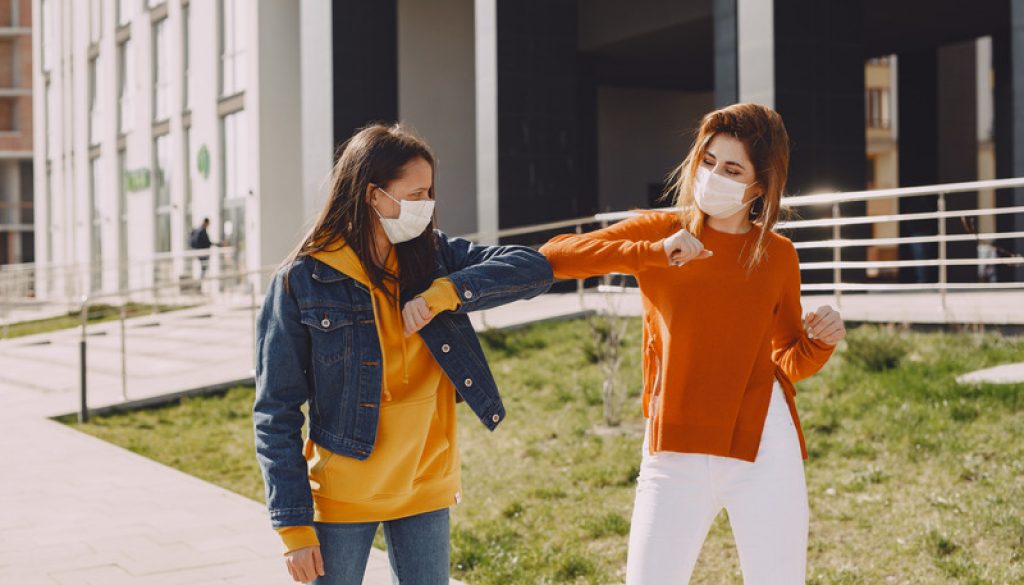Life Changes as a Result of a Global Pandemic

While I still cringe at the ubiquitous use of the phrase “new normal” – the pandemic has led to some positive changes for which I am grateful. I read a compelling piece about the joint effort of Parade and the Cleveland Clinic that surveyed 1000 Americans during the past few months of COVID-19.
The results are both positive and negative and give us pause to reflect on what can focus on as we move forward living life in the new normal, abnormal as it often feels.
Lessons Learned
62% Adopted at Least One Healthy Change
I was shocked to learn that 88% of American adults are considered in poor metabolic health, with high blood pressure or high cholesterol, for example. The shelter in place pandemic requirement inspired many to eat unprocessed foods, exercise, and develop healthy sleep habits, even if in small increments. Dr. Mark Hyman, head of strategy and innovation for Cleveland Clinic’s Center for Functional Medicine said, “Poor metabolic health can be reversed in a couple of weeks, simply by dietary change.”
41% with Chronic Conditions More Likely to Comply with Treatment
The global pandemic gave many a wake-up call about managing chronic conditions. Dr. Kristin Englund, Cleveland Clinic infectious disease specialist said, “It’s put a real spotlight on helping people manage their current diseases so their risk factors moving forward can be improved.”
55% Reported an Increase in Mental Health Issues
We can all relate to the “2020 induced grief”, as described by David Kessler, founder of Grief.com and he believes, “…it’s OK to say we are having a tough time.” Anxiety and depression have increased during COVID and honoring self-care is essential. Dr. Will O’Connor, CMIO of a healthcare start-up in Georgia shared, “There is a lot of minimizing or catastrophizing on the news, and that’s not good for your mental health.” I have had to limit my news consumption so as not to get overwhelmed with the perpetual breaking news cycle of tragedy and loss. I’ve tried to focus on positive and uplifting news to bolster my mood and outlook.
65% Gained New Perspective on What Really Matters
Spending more quality time with family and even pets has helped put life in perspective for many. Without external activity overload, many have changed their pace of life and opened up mental space for reflection and gratitude.
27% Tried Telemedicine
While Telehealth is not new, it has become more widely available during the pandemic. Many medical practices have added the virtual option for routine visits and check-ups to minimize contact and honor social distancing. Nobody appreciates sitting in the waiting room at the doctor’s office with a bunch of sick and potentially infectious people.
76% Tried New Coping Techniques
Puzzles, exercise, and meditation ranked high in the survey responses as ways to manage the stress of the pandemic with coping techniques. Honoring your mental health should always be a top priority but the pandemic helped us gain clarity about how important this really is. I am learning to mediate and started simply with the Calm meditation app. The guided meditations are perfect for a beginner like me, and the short experiences begin with a one-minute meditation as an easy place to start.
87% Will Continue with Dietary Changes
We saw a return of the Victory Garden this summer and many grew vegetables and enjoyed healthier garden-to-table meals. While I am supporting local restaurants by purchasing gift cards, I am enjoying eating at home and being more conscious about avoiding processed foods to eat cleaner.
38% Skipped or Delayed Routine Medical Visits Due to COVID-19
Telehealth is a great option for many health care needs but can’t replace a dental cleaning, mammogram, or colonoscopy. Many skipped their annual medical visits because of COVID and now is the time to get back on the schedule to honor your health. Don’t let the months slip away before you reach out to schedule the appointments you may have missed.
We are still living in a global pandemic and I am grateful to the survey research of Parade and the Cleveland Clinic to help us consider how we are designing a path forward with intentionality.






